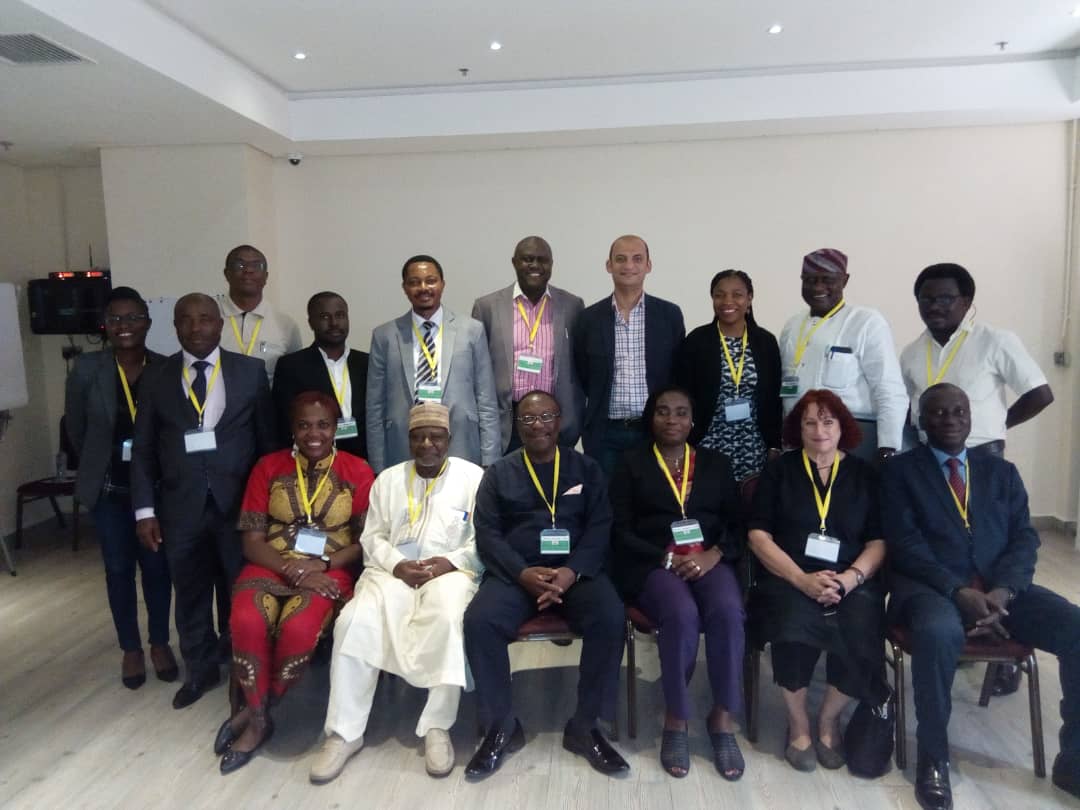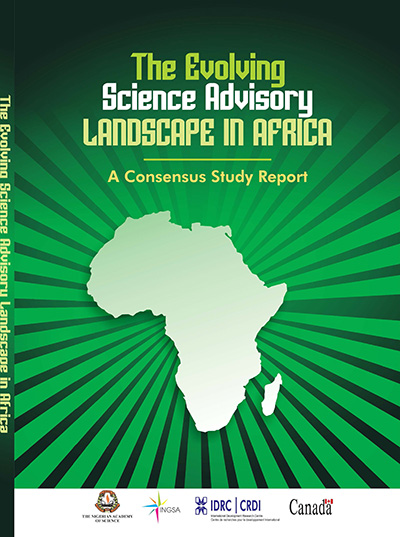Launch of INGSA-Africa Report – The Evolving Science Advisory Landscape in Africa – Webinar, July 2021
Read and Download the full INGSA-Africa Consensus Report
ISBN: 978-978-981-851-8
Launch of The Evolving Science Advisory Landscape in Africa Report
Organisers:
Attendance
Hon. Dr. Monica Musenero, Minister in Charge of Science, Technology, and Innovation, Office of the President, Republic of Uganda, launched the report, with 58 participants in attendance. The participants represented government, private sector, civil society, academia, and development partners from Nigeria, Egypt, Ghana, South Africa, and Uganda.
Action Items
- Media Engagement: It is critical for African national science academies to engage the media in their efforts in the science-policy space to ensure that key messages reach the target audiences. Such an approach will also increase the academies’ visibility. UNAS has started working with a group of science journalists to engage in its studies and convening activities.
- Collaboration and Partnerships: National academies need to collaborate with the government and other stakeholders to ensure uptake of their products. This will enable them to reach all beneficiaries from the grassroots to high-level stakeholders. Reports by academies present excellent recommendations, there is a need for innovative thinking to increase uptake of these products. Both NAS and UNAS will continue to leverage their contacts within government and business to create opportunities for the uptake of science advice in their countries.
- Promotion of Science Education: Governments across Africa should consider revising their curricula to provide for quality science education at all levels, notably at primary, secondary, and higher education levels. Additionally, the academies need to cultivate relationships with public and private universities to involve undergraduate and postgraduate students in their work. Academies can also collaborate on proposals and other research activities with the universities. UNAS’ standing committee on education will take this matter further.
- Building Trust: For the African science academies to effectively impact the policymaking arena in Africa, they need to build trust with policymakers. The academies should actively engage policymakers in their work to ensure that they produce reports/papers relevant to the current situations in their respective countries and the continent.
- Effective Science Communication: Scientists need to present their findings in ways that are understandable by policymakers and the general public. This approach will increase uptake of their products, their relevance, and visibility. The inability to understand scientific information is a contributing factor to the low uptake and usage of such reports. Science academies in Africa should aim at science impact, and not simply offering science advice.



